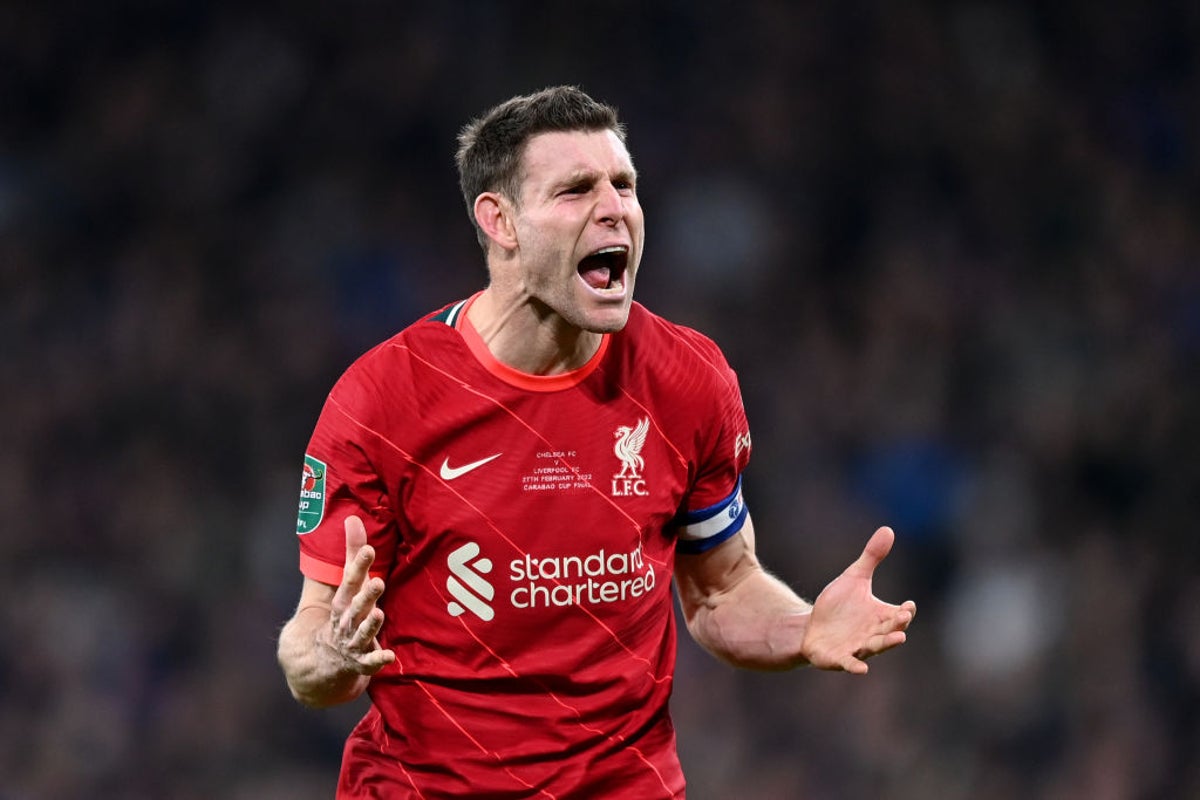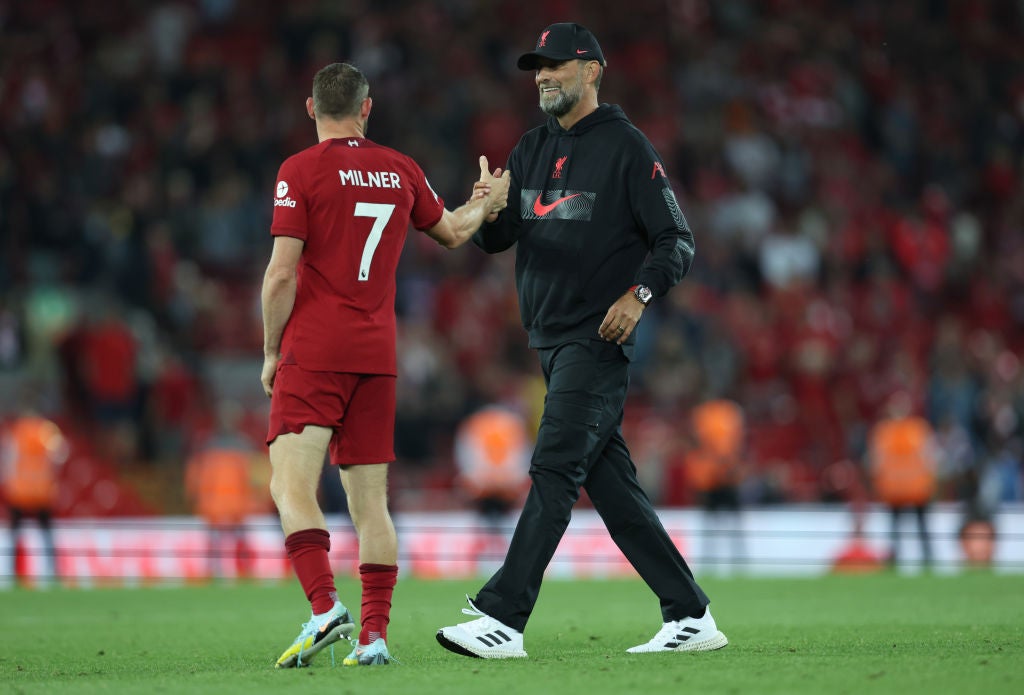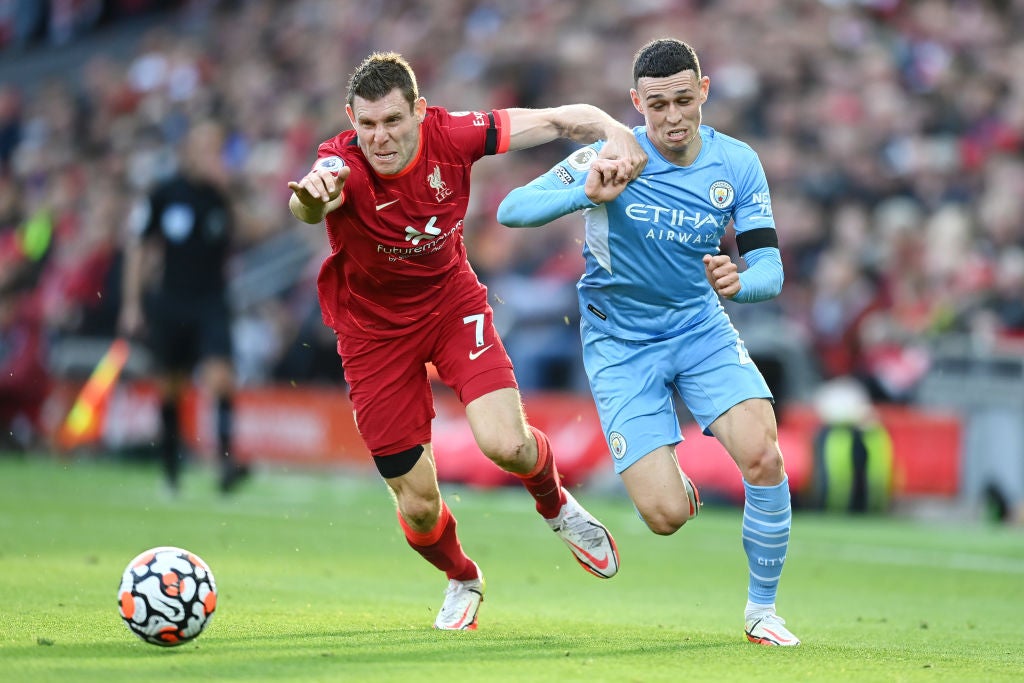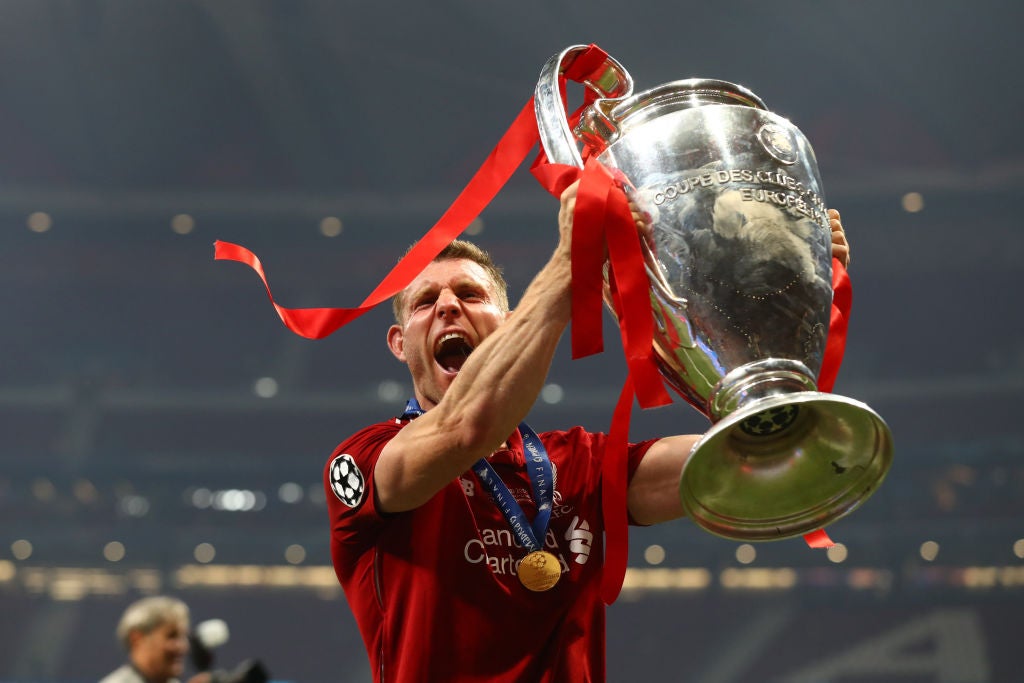
For the first time, Jurgen Klopp was talking about James Milner in the past tense; or the past conditional, anyway. It wasn’t because, as Liverpool midfielders go, Milner is rather closer in age to Steve McManaman than Stefan Bajcetic. Rather, it was because Milner will soon consign himself to Liverpool’s past. “I would have loved to work together with him for even longer,” said Klopp, with a hint of wistfulness.
It was not quite a formal announcement, but there is now confirmation that Milner’s Liverpool careeer only has only two games left to run. The 37-year-old will leave Anfield at the end of the season, with Naby Keita and Alex Oxlade-Chamberlain also departing at the end of the contracts. Milner seems destined for Brighton and the chances are, that in pre-season training in Sussex, the distance running tests will be won by a man who played Premier League football with Nigel Martyn and against David Seaman.
More than two decades after his top-flight debut, some 916 games into his career for club and country, Milner’s time is not up yet. Not that it will surprise Klopp: he has said before that Milner can play until he is 40. He hoped to keep him at Anfield past his 38th birthday.
“I can say over the last few months I had really good conversations with him,” Klopp said. “He knows how highly I value him. Nothing in the last seven-and-a-half years of the positive things would have happened without James Milner.”

For once, Klopp’s persuasive powers failed him. For twice, actually, because it is only a couple of months since Roberto Firmino revealed that he, too, will go in the summer. Klopp had hoped to retain each. Maybe a diminished status did not appeal to either. Klopp termed Milner “an incredible part of the team”. A more accurate appraisal would be to say the odd-job man can be an invaluable member of the squad. Klopp has tried to keep him involved: Milner’s next game will be his 40th of the season, his highest total since 2018-19. But only six of his 27 Premier League outings have been as a starter. His seven most recent appearances have lasted six, four, six, nine, eight, 11 and eight minutes respectively. Brighton may offer the prospect of a more prominent role, especially if Klopp raids the American Express Stadium for Alexis Mac Allister.
With Liverpool’s season potentially going down to the final day, there may not be scope to be sentimental. If so, Milner’s final start may forever remain captaining Liverpool in the Bernabeu, as part of a central-midfield duo who were outnumbered by a trio of Luka Modric, Toni Kroos and Eduardo Camavinga. It is the sort of thankless task that always seemed to come Milner’s way; his uncomplaining nature meant he took them on.
His last great Liverpool performance came as an auxiliary right-back in October’s win over Manchester City: Milner against Phil Foden should have been an unfair contest, but he won it.

There seemed something cruel that, when the speedster Mykhailo Mudryk was first unleashed in English football, his immediate opponent was Milner but if Klopp needed him, apart for his influence off the field, it was more as a right-back. There were a couple of games this season, principally away against Napoli, that prompted the question if the oldest gegenpresser in town could still play in a Klopp midfield.
With at least two, and perhaps three, midfielders set to arrive in the summer, Milner’s ambition to play and his innate realism may have driven him to the exit. Firmino, meanwhile, had started to look the sixth-choice forward. Klopp has denied he is too loyal but if each has belatedly lost their sharpness, they have may have made the right decision.
Each was a player Klopp inherited, among Brendan Rodgers’ final signings – not that the Northern Irishman knew what to do with Firmino – and they went on to become the two players with the most appearances under Klopp: 353 by the Brazilian, 321 by the Yorkshireman. An era ends with them both, the shift to Klopp 2.0 more pronounced.

But what an era it was. Milner has long seemed a predictable figure, whether in his effort or his persona, but there was something unpredictable in how his time at Anfield played out: he had a remarkable year at left-back in 2016-17, a role he reprised in the second half of the 4-0 demolition of Barcelona in 2019; Lionel Messi had called Milner a donkey in the first leg of their semi-final but the donkey went on to conquer Europe. In 2017-18, he equalled Luis Figo’s record for most assists in a Champions League season. Over eight years at Anfield, he won the lot: Champions League, Premier League, Club World Cup, European Super Cup, FA Cup, League Cup and Community Shield. He took on Liverpool’s iconic No. 7 shirt, famed for flair players, and instead made it the domain of the ultimate utility player. But now Milner, the veteran who could long outrun anyone, seems to be moving on, and Klopp will miss him.







